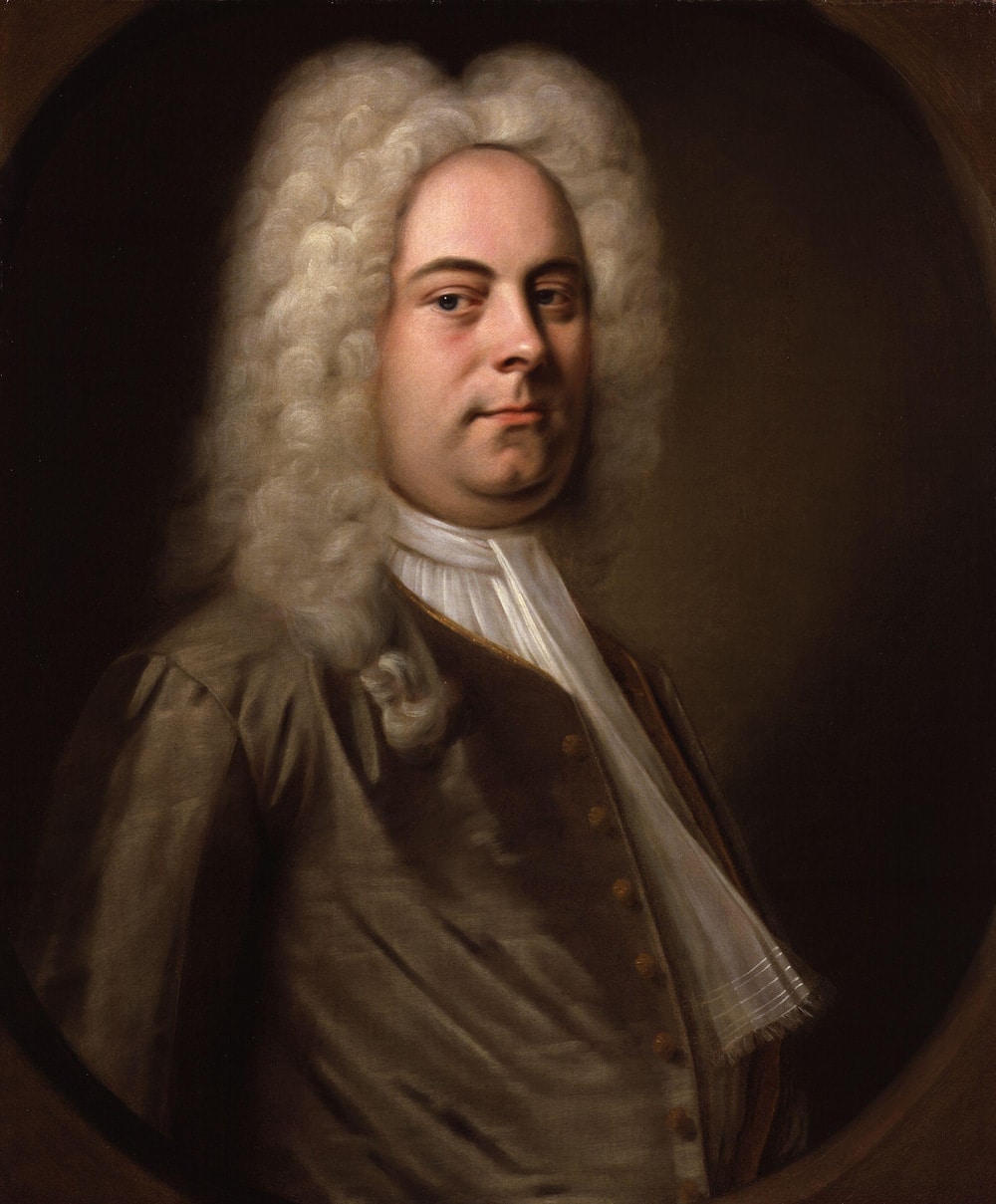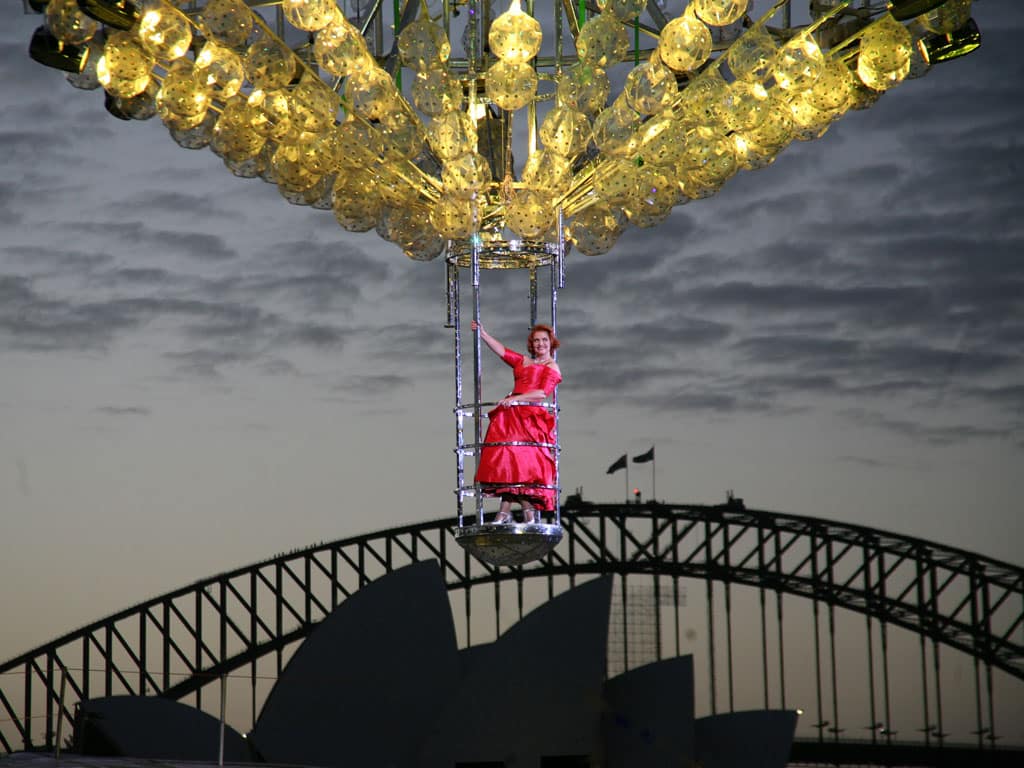The great Australian soprano Joan Sutherland was hailed as ‘La Stupenda’ after a 1960 Venice production of Alcina, Handel’s 1735 spellbinding opera of magic and love.
Next month, Canberra audiences can hear an all-Australian cast, led by Emma Matthews in the title role, in National Opera’s production, a tribute to the late Sutherland and her widower, conductor Richard Bonynge.
Like Circe, Alcina is a beautiful enchantress, living on a magic island, who seduces men and turns them into beasts, rocks, and plants. But her sorcery comes undone when she falls in love with the knight Ruggiero…
Handel’s friend, the artist Mary Delany, considered Alcina “the best he ever made… ’tis so fine I have not words to describe it… I could not help thinking [Handel] a necromancer in the midst of his own enchantments.”
“Few of [Handel’s] productions have been more frequently performed, or more generally and deservedly admired, than this opera,” Charles Burney wrote in his General History of Music (1776–89). “Upon the whole, if any one of Handel’s dramatic works should be brought on the stage, entire, without a change or mixture of airs from his other operas, it seems as if this would well sustain such a revival.”

Alcina is a very special piece, with gorgeous music and great singing, says National Opera’s artistic director, Peter Coleman-Wright.
But the work has not been performed in Australia since a 2007 Sydney production.
Coleman-Wright has assembled a talented cast who, he says, “perform the incredibly difficult roles with great aplomb”.
“All of them are particularly gifted in this specialised genre… All composers place difficult demands, but Handel really is quite exposed. The challenging tessitura and coloratura make a great singer.”
Handel specialist Graham Abbott will conduct the Canberra Symphony Orchestra. An ex-NIDA designer from Sydney will transform Llewellyn Hall into Alcina’s island.
Emma Matthews is excited about her part; she is “raring to go”. Handel, she discovered as a young singer, suits her voice. She recorded albums of Handel arias early in her career, and has sung four Handel operas, including Alcina (in the secondary role of Morgana).
“I love the challenges of the da capo arias [in which the first section is repeated from the beginning, thus ABA] – being able to ornament, and yet not detract or distract from the writing.”
She loves the theatrical quality of Handel’s writing, including 13 complex recitatives. “The way he writes for the language is so speechlike and dramatic.”
Alcina has two famous arias: “Di’, cor mio” (Act I) and “Ah, mio cor” (Act II).
“They are the sort of arias that you hold your breath in as a listener, because the beauty of the writing is so incredible,” Matthews says. “The arias are all just little gems; they’re like grand paintings of composition.”
According to musicologist Jonathan Keates (Handel: The Man and His Music, 1985), “the opera’s enduring strength is that Alcina becomes what we choose to make it, a delightful confection of wizardry and dalliance, a Baroque entertainment, or something a little more profound, a story in which the artist Alcina, confronting the strength of her own passions, is finally crushed by them.”
“Handel is one of those composers who really understood human nature,” Coleman-Wright believes. “Alcina is intrinsically about deep human emotions: passion, jealousy, revenge, love, sadness… Handel could do that through his music almost better than anyone. When you get to know the arias well, whatever the emotion he’s expressing is done with such truth and honesty, matched with beautiful harmonies, gorgeous music and orchestral writing.”
Matthews looks forward to the challenge of playing an unsympathetic character. “I tend to play characters that the audience love; there’s not much about her that you can love, but I think you feel sorry for her. That’s in the music… But she really deserves everything she gets. She’s not a nice person, and she chews and spits out men. I’m used to being liked, but I am looking forward to the power of her.”
Describing herself as “generally quite a cheeky person”, Matthews has practised eyebrow lifts and expressions before her mirror to convey the character’s emotions: “The depth of her, the seriousness of her, and the level of betrayal that she feels at the slightest thing, she’s so jealous and selfish.”
Matthews considers the role a comeback to eastern Australia; based in Perth, where she is senior lecturer and head of classical voice and opera studies at the Western Australian Academy of Performing Arts, she has not performed on this side of the country for six years.
The production is dedicated to Sutherland and Bonynge – he will attend the opening night – and Matthews says she is honoured, not daunted, to follow in ‘La Stupenda’s’ footsteps.
“She was the best of the best, and Maestro Richard Bonynge has been my mentor … and he is a dear friend. The fact that he’s going to be there, and we’re singing in the honour and memory of Dame Joan – that’s just a beautiful thing, and I hope if she’s watching from up there, she’d be thrilled.
“The fact he’s going to be there is making me work even harder, too, because I know what he likes me to sound like! So, I’ll be working really hard to get the bel canto sound in the voice and have the voice spinning and beautiful at all times.”
There will be a small exhibition of Sutherland memorabilia, including photographs of her as Alcina and some of her concert gowns.
Coleman-Wright urged the public to come to Alcina, not just for the beauty of the work, or to hear great singing, but for the company’s future.
“They need to come primarily to support this opera company that belongs to Canberra; we really need the support of the people very much,” he said.
National Opera’s plans for next year have been put on hold, after the ACT Government refused their application for a $100,000 Emerging Arts Organisation Investment grant.
“All plans have been made, but we can’t announce them until we know exactly what shape we’re going to be in,” Coleman-Wright said. “Whether we have to reduce it or change it, a lot of it depends on how many people support us in Alcina.
“If Canberra want National Opera to be able to grow, and be something special for Canberra, then we really need people to support it.”
Handel’s Alcina will be performed at the Llewellyn Hall, ANU School of Music, on Thursday 8 and Saturday 10 December. Tickets: premium $169.50 – $179.50; A reserve: $149.50 – $159.50; B reserve: $129.50 – $139.50; C reserve: $75 – $85. For more information, visit nationalopera.org.au/alcina/



